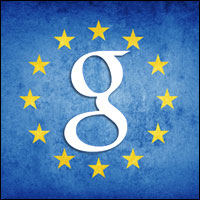Will 11th Hour Objections Derail The Google-EU Antitrust Settlement?
When the European Commission recently announced yet another antitrust settlement with Google the matter appeared to be coming to an end. This was the third proposed settlement from Google but indications from EU Competition Commissioner Joaquin Almunia suggested that it was essentially final and only formalities remained to approve it. Unlike the two previous settlement proposals, this […]

Unlike the two previous settlement proposals, this one is reportedly not going to be subjected to a “market test” (formal review by rivals and critics) — although the European Commission will be accepting comments, apparently.
Google’s critics immediately slammed the conclusory nature of the EU settlement announcement. And in a press release yesterday, anti-Google lobbying group FairSearch.org called for another “market test” and comment period on the third proposal:
To redress Google’s abuse of its dominant position, the proposed commitments reportedly would charge competing “vertical search engines” to display (for example) their travel, accommodation or flight services on a results page in a position where consumers will notice. But Google’s own vertical search services will maintain preeminent positions on the search page and will not have to pay for placement.
This combination of payment and secondary placement will merely reinforce Google’s dominant position at the expense of competitors, pricing them out of the market and reducing consumer choice.
FairSearch urges the Commission not to accept Google’s third proposal on good faith, but to make it public so that it can be subjected to testing which will reveal its actual effects on the market, competitors and consumers.
There’s a legitimate question about what sort of settlement would be accepted by anti-Google groups such as FairSearch. Some have argued these groups are just trying to prolong the antitrust inquiry as long as possible.
However it’s not just competitors who are upset. Reportedly several European Commissioners who must vote to approve Almunia’s request to make the settlement proposal binding, and thereby end the matter, have voiced displeasure and concern.
According to Bloomberg, EU Commissioners may force additional discussions or prevent the settlement in its current form from becoming final:
Viviane Reding, the EU’s justice commissioner, and Michel Barnier, who leads financial-services policy, told Almunia at a regular meeting they were unhappy with his handling of last week’s settlement, said the people who declined to be named because the talks were private.
“We had a very long debate which shows that there are a lot of concerns and questions,” Barnier told reporters today in Brussels. “We haven’t finished our work on this subject.”
Just when the Google-EU antitrust matter appeared to be coming to a close it may not be. Some of the objecting EU Commissioners may ultimately be seeking a way to reduce Google’s market power. However regulatory intervention on the search results page is not only inappropriate it’s unlikely to succeed.
From a Google hawk perspective, a more “promising” arena for EU intervention may be Android and Google’s tight control over the world’s most popular operating system.
Opinions expressed in this article are those of the guest author and not necessarily Search Engine Land. Staff authors are listed here.
Related stories
New on Search Engine Land